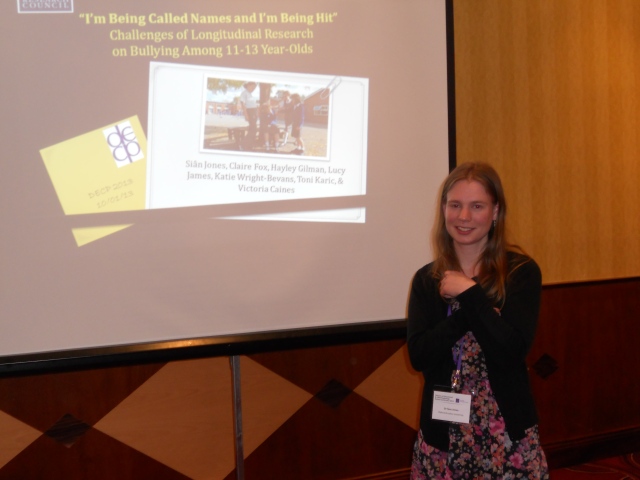Research is Me-search
It would be a strange world where researchers didn’t engage with topics of research which they feel passionately about, wouldn’t it? Most researchers are looking at something they’re interested in, surely.
A recent School seminar run by Marta Wanat, Emotional Impact of Research on the Researcher got me thinking about the issues surrounding this. To me, it seems there are two main ways in which research might be impacted by the researcher.
- Image coutesy of PsyPAG at BPS, 2013
- Image coutesy of PsyPAG at BPS, 2013
The first is where researchers have a real passion for their topic, that might spill over into personal experience of the subject they are investigating. I know researchers who investigate Israeli-Palestinian relations, when they are themselves Palestinian, who are single parents researching single parenthood, and Welsh speakers researching Welsh language and identity. The workshop seemed to conclude, and I agree, that as long as the researcher looks after him or herself, and maintains an open and objective perspective on the research (reflexivity et al.) this is not a problem.
The second is where there is something about the researcher which carries stigma that might impact on the research. An insightful reflection on this is provided in a 2011 paper by Lindsey Brown and Felicity Boardman: Accessing the Field: Disability and the Research Process, in Social Science and Medicine. This paper reflects on how being a researcher with a disability impacts on interviewees’ responses, whether the topic of the research is disability or not, and covers very real practical and ethical dilemmas of this research; dilemmas which otherwise receive little or no attention in the research literature.Further to their paper, I’d also ask about the attention given to presentations from those with a disability, (and by extension any shared or stigmatised identity) at conferences – that’s a whole new kettle of confounds.

From the workshop, and the paper, it seems that the issue underpinning the above two, is one of disclosure. Whether, when, and how one discloses personal interests, perspectives, and experiences to participants. Some researchers don’t have a choice about this, though it can be managed in various ways, myself included. Reflecting on the first case then, I have chosen to only disclose experience of bullying when directly asked by a participant, only after questionnaire completion, and then only as a simple “yes”. I have visited well over 100 schools now in the course of my research, and over 500 classes – I have only been asked twice. I take the same stance on the second case: I don’t go out of my way to hide my physical disability via Skype interviews for example, and only when asked will I disclose it to a child or teacher. I find it hard to see why the visibility of my disability would impact on children’s responses, but I haven’t tested that. I have been asked about my right arm by children three times thus far.
I made the above decisions solo, as it were, several years ago, without recourse to best practice guidelines, because I thought that was what would be best for me and the validity my research findings. The workshop highlighted an important concern, however: If I had tried to go with best practice, I would have found no best practice guidelines to go to – existing code only covers safeguarding procedures aimed at preventing violent abuse from participants.
Marta is running a PsyPAG workshop along the lines of her talk on 11th March, 2013, at Oxford Brookes University. I would highly recommend attendance, and indeed more dialogue surrounding this among postgraduates and grown-up researchers.



I liked this post until the end reference to PsyPAG and more ‘grown- up’ researchers – possibly better to substitute this with ‘more experienced’ !
Pingback: Mind the Gap: Social Psychology, not Social Psychology, and the Spaces In-Between | Through the Academic Looking Glass